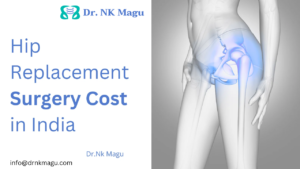Why Burnout-Prone Nurses Need AI to Share the Load?
Nurses are superheroes. Just not the invincible kind. They do 12-hour shifts. On their feet. Dodging IV poles. Juggling paperwork....

Nurses are superheroes. Just not the invincible kind.
They do 12-hour shifts. On their feet. Dodging IV poles. Juggling paperwork. Dealing with alarms, families, patients, doctors, and devices that beep louder than common sense. And when you think they’re off the floor? Surprise. They’re charting.
Burnout isn’t knocking at the door. It’s already in the breakroom, sipping vending machine coffee, and complaining about the night shift.
So, let’s cut to the chase: Nurses need help. Not with their skills. Not with their empathy. They need help with the load. The repetitive, time-draining, sanity-testing stuff. Enter AI.
But don’t worry, this isn’t one of those “robots are taking over healthcare” rants. This is about tech doing what it does best—handling boring tasks so humans can stay human. With sarcasm, caffeine, and compassion intact.
Nurses vs. Endless Admin Work: A Horror Story
You thought horror films were scary? Try watching a nurse fill out the same form… seven times. In different formats. For different systems. With login credentials that expire faster than leftover pizza.
Documentation is essential. Sure. But should it take longer than the actual care? Probably not.
This is where AI steps in. It’s not here to replace anyone. It’s more like that colleague who never takes coffee breaks and doesn’t complain about printer jams.
Voice-to-text note-taking. Automated charting. Predictive scheduling. These tools can shave off hours. Not metaphorical hours. Real, blood-pressure-lowering hours.
And yes, AI can mess up sometimes. But so can humans. Remember that one time someone prescribed “3 pizzas daily” instead of “3 puffs daily”? No? We’re still laughing about it.
Computer Vision in Healthcare: Eyes That Don’t Blink
Now, here’s where things get interesting.
Let’s talk about Computer Vision in Healthcare. It sounds like something out of a sci-fi film, but it’s already here. And no, it doesn’t involve robot eyeballs doing laser scans.
Computer vision basically helps computers see. Like, actually see what’s happening in a hospital room. Without blinking. Without yawning. And without scrolling through Instagram mid-shift.
This tech can track patient movements. Detect falls. Alert nurses before a situation escalates. It can even notice when a patient hasn’t moved in a while—before bedsores start doing their ugly work.
Imagine cameras flagging risk behavior, not for surveillance, but for support. A patient trying to get out of bed solo? The system flags it. Nurse gets notified. Crisis avoided. Nobody sprained anything. No forms were filed in triplicate.
It’s like having extra sets of eyes that aren’t attached to exhausted humans. Which, frankly, sounds like magic. But it’s math. And a lot of wires.
Nurse Burnout Isn’t Just a Buzzword
There’s this persistent myth that burnout is just “being tired.” No. Burnout is soul-level exhaustion. It’s forgetting your own birthday while remembering a patient’s potassium levels.
It’s crying in your car between shifts. It’s smiling while charting things that shouldn’t take three screens and a password reset.
AI can’t fix staffing shortages (yet). But it can take away the small stuff that adds up. Repetitive monitoring? Gone. Constant documentation? Trimmed. Scheduling chaos? Smoothed with algorithms that aren’t fueled by caffeine and regret.
A nurse shouldn’t feel guilty for needing help. They already do enough. They carry too much. The least we can do is give them smart tools. Ones that don’t require a 4-week training manual and a degree in quantum physics.
But What About the Human Touch?
No AI will ever match the way a nurse calms a scared child. Or how they catch subtle signs that a monitor doesn’t. That’s the point.
Let AI do the background stuff. Let nurses do what they were trained to do—care.
Imagine this:
- An AI system watches vital signs in real-time. Flags only what’s truly abnormal.
- Computer vision tracks risky patient movement.
- Predictive models suggest who might need extra attention in the next hour.
- Nurses focus on care, not codes, clicks, and chaotic paperwork.
Now we’re talking.
The Tech Isn’t Perfect, But Neither Are People
Let’s not pretend this is flawless. AI will make mistakes. It will occasionally flag a pillow as a person. It might suggest an alert at 3 AM because someone sneezed too loud.
But honestly? That’s still better than waking up at 3 AM to manually check who might’ve wandered off the bed.
It’s progress. And progress isn’t smooth. But neither is a hospital floor during flu season.
The Laughably Real Benefits of AI for Nurses
Let’s summarize, but in a way that doesn’t sound like a boring PowerPoint:
- No more charting at midnight: AI can automate routine logs.
- Fewer false alarms: Smart systems learn what’s normal and what’s not.
- Instant alerts: Computer vision catches issues before they become full-blown problems.
- Better scheduling: AI doesn’t play favorites. It just builds efficient rosters.
- More coffee breaks: Okay, that one’s a stretch. But still, a nurse can dream.
Are We All Turning Into Robots? Nope.
This isn’t the start of some robotic uprising. It’s the opposite. AI in healthcare, especially tools like computer vision, allows humans to stay human.
You know, like holding a hand. Making eye contact. Smiling under a face shield.
If anything, tech lets nurses stop multitasking like caffeinated octopuses. And start doing what they actually signed up for—being present.
Final Thought: Nurses Deserve Better Tech
Nurses have handled pandemics, chaos, and budget cuts. They’ve worked through holidays, birthdays, and everything in between. They’re already the backbone of the system.
It’s about time they got tools that don’t feel like they were built in 1998 by someone who had never seen a hospital.
So, bring on the AI. Bring on computer vision. Bring on anything that lets nurses go home on time.
Just don’t let it beep louder than the coffee machine.
If AI can help a nurse spend five more minutes with a patient instead of a spreadsheet, that’s not just good tech. That’s good healthcare.
And maybe, just maybe, the next time burnout tries to waltz into the breakroom, it’ll find the door locked. With an AI assistant on the other side saying, “Sorry, nurses are busy being awesome right now.”






